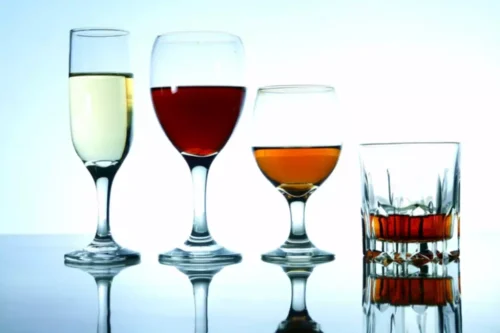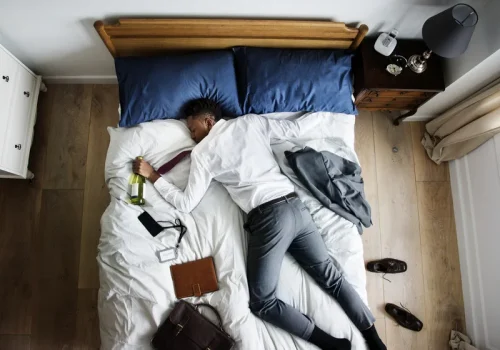Heavy drinking seems to increase cholesterol levels, a predictor of heart disease. When you stop excessive drinking, your risk of heart disease goes down. Since heart disease is the leading cause of death in the United States, it would be a wise idea to lower your risk if possible.

Weight loss

Before the challenge, participants were defined as “moderate to heavy drinkers” who drank around 258 grams of alcohol a week, roughly equivalent to about 18 standard drinks. No participants had a history of known liver disease or alcohol dependence. Alcohol use disorder frequently occurs alongside other mental health conditions.
- If you experience ongoing anxiety or depression, it’s important to reach out to a health care provider to discuss treatment options.
- Try skipping alcohol, especially in the late afternoon and evening, for more restful shut-eye.
- By drinking to cope, you’re avoiding dealing with the underlying problem(s), and your alcohol use can actually make them worse—for example, by interfering with relationships with family and friends.
Physical Benefits of Quitting Alcohol
If you can’t control it, it may lead to a condition called alcohol use disorder. Giving up drinking may let you focus on your relationships, work, and health. It also may ease any depression and anxiety and elevate your self-esteem. Getting your liver or blood pressure checked by your doctor can help you feel motivated to continue the journey of recovery, and reduce long-term effects of alcohol on the body. While everyone’s timeline is different, many people start to feel the benefits of sobriety more fully with two weeks down.
Your Body Starts to Detox

These withdrawal symptoms can include hallucinations and seizures. When you stop drinking alcohol, your mind will be able to recover. This can greatly what happens when you stop drinking alcohol improve your memory and other cognitive functions. Adjusting your relationship with alcohol may help you avoid conflict with people who care about you.
- If you are drinking in excess, it’s better to cut your alcohol intake,” said Dasgupta.
- Once you get through that part of the process, you’ll start to feel better physically and mentally.
The Benefits of Quitting Alcohol
After half a year without drinking, you will really start to reap the rewards. Your risk of developing cancer will decrease, and your liver function will have greatly improved. This is usually when people start to feel their best after giving up alcohol. By this point, most physical withdrawal symptoms should have subsided and you should start to feel less anxious and more positive.
- With the support of her boyfriend, she decided to stop drinking alcohol completely to see if it improved her health and wellbeing.
- Or if you’re just thinking about taking a break from alcohol, for your own reasons or as part of a challenge, you will be joining millions of others.
- After you drink alcohol, Volpicelli explains that the small molecules inside it get absorbed by your gut.
- While it’s not instant or a miracle, this thermogenic boost over time could be the game-changer to managing weight.
Week Four Benefits
- It is worth mentioning that nutritional status improvement occurs when someone strop drinking, which is one big reason why people may see many of the above improvements with sobriety.
- This condition is serious and may lead to symptoms such as high blood pressure, tremors, and seizures.
- Your risk of developing cancer will decrease, and your liver function will have greatly improved.
Seizures can occur, and an uncommon but dangerous condition called delirium tremens can happen at this point in withdrawal. Delirium tremens has a fatality https://ecosoberhouse.com/ rate of 37% if untreated and is considered a medical emergency. Alcohol withdrawal symptoms generally begin within 12–24 hours after your last drink.
